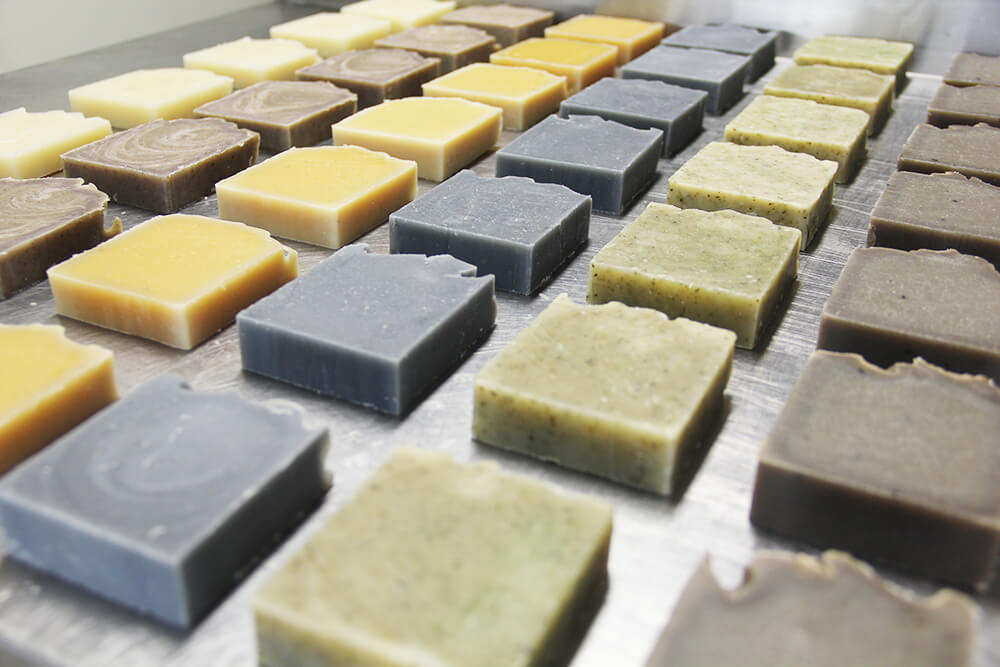Introduction
Sensitive skin is one of the most common skin types, yet it often gets overlooked in daily skincare routines. People with sensitive skin frequently experience redness, dryness, itching, or irritation after using traditional soaps and cleansers. Harsh chemical ingredients, synthetic fragrances, and even water temperature can contribute to skin discomfort.
Choosing the right soap is essential not only to cleanse the skin but also to protect the natural moisture barrier. Soaps for sensitive skin are specially formulated to be gentle, hypoallergenic, and effective. They provide a soothing and nourishing experience without causing irritation, making daily cleansing a safe and pleasant routine.
In this article, we’ll explore:
-
What makes skin sensitive
-
Key ingredients for sensitive skin soaps
-
Benefits of using gentle soaps
-
Daily routines and tips
-
Recommended products and real-life experiences
-
Scientific principles behind mild soap formulations
What Makes Skin Sensitive?
Sensitive skin is reactive and prone to inflammation. Common triggers include:
-
Harsh chemicals: Sulfates, parabens, synthetic fragrances, and alcohol-based cleansers
-
Environmental factors: Sun exposure, extreme temperatures, pollution, or wind
-
Physical irritation: Rough exfoliators, harsh scrubs, or abrasive cloths
-
Health or lifestyle factors: Stress, diet, hormonal changes, or medical conditions
Signs of sensitive skin often include:
-
Redness or blotchiness
-
Itchiness or stinging
-
Dryness and tightness
-
Rashes or minor breakouts
People with sensitive skin need products that cleanse effectively without disrupting the skin barrier or causing further irritation.
Key Ingredients in Soaps for Sensitive Skin
When choosing a soap, look for natural and gentle ingredients:
-
Glycerin: Attracts moisture to the skin and keeps it hydrated
-
Shea Butter or Cocoa Butter: Nourishes and softens the skin without clogging pores
-
Oat Extracts or Colloidal Oatmeal: Soothes irritation and provides mild exfoliation
-
Aloe Vera: Calms redness, reduces inflammation, and promotes healing
-
Chamomile or Lavender Essential Oils: Mild fragrance and anti-inflammatory properties
-
pH-Balanced Formulas: Maintains the skin’s natural acid mantle and prevents dryness
-
No Sulfates, Parabens, or Synthetic Dyes: Minimizes risk of irritation and allergic reactions
Benefits of Using Soaps for Sensitive Skin
Using gentle soaps provides multiple benefits:
-
Cleansing without irritation: Removes dirt and impurities without stripping natural oils
-
Maintains hydration: Preserves the skin’s moisture barrier, reducing dryness
-
Reduces redness and itchiness: Helps calm inflamed areas
-
Safe for daily use: Can be used on the face, hands, and body without over-drying
-
Supports healthy skin barrier: Strengthens skin resilience to environmental stressors
Daily Skincare Routine for Sensitive Skin
A proper routine enhances the benefits of gentle soaps:
-
Use lukewarm water: Avoid hot water, which can dehydrate and irritate the skin
-
Apply soap gently: Use fingertips instead of abrasive cloths or brushes
-
Rinse thoroughly: Ensure no residue remains, as leftover soap can irritate skin
-
Pat dry, don’t rub: Helps maintain moisture and prevents friction
-
Moisturize immediately after cleansing: Use a gentle lotion or cream to lock in hydration
Recommended Soaps for Sensitive Skin
Some types of soaps are particularly effective:
-
Glycerin Soaps: Highly moisturizing, gentle, and hypoallergenic
-
Oatmeal Soaps: Soothe redness, itchiness, and mild irritation
-
Aloe Vera Soaps: Calm and hydrate inflamed skin
-
Fragrance-Free Soaps: Minimize allergy and irritation risk
-
Shea Butter Soaps: Nourish dry and sensitive areas
User Experiences and Real-Life Stories
Emily, 32: “Switching to a glycerin-based soap changed my routine. My redness decreased, and my skin feels hydrated all day.”
Michael, 27: “I have eczema, and most soaps irritate my skin. Aloe vera soap is gentle and effective without causing dryness.”
Sophia, 25: “I tried fragrance-free oatmeal soap, and it’s amazing. No more itching or redness after showers.”
Common Mistakes with Sensitive Skin Soaps
-
Using hot water: Can strip natural oils and worsen dryness
-
Over-scrubbing: Even mild soaps can irritate if rubbed aggressively
-
Mixing products with harsh chemicals: Layering sensitive skin products with regular exfoliators can trigger reactions
-
Skipping moisturizer: Gentle soaps clean, but hydration is key to maintaining barrier function
Scientific Principles Behind Sensitive Skin Soaps
-
pH Balance: Healthy skin has a slightly acidic pH (~5.5). Soaps formulated near this pH maintain the acid mantle and prevent dryness.
-
Mild Surfactants: Gentle cleansers remove dirt without damaging lipids or proteins in the skin.
-
Emollients: Ingredients like shea butter and glycerin replace lost moisture and strengthen the barrier.
-
Anti-inflammatory Agents: Oatmeal, aloe, and chamomile reduce irritation and redness.
Seasonal Care for Sensitive Skin
Sensitive skin requires different care depending on the season:
-
Winter: Cold, dry air can strip moisture from skin, making it prone to irritation. Use moisturizing soaps with glycerin or shea butter to maintain hydration. Avoid soaps with strong fragrances or high pH levels.
-
Summer: Heat and sweat can increase irritation and acne-prone spots. Opt for lightweight, soothing soaps with aloe vera or oatmeal extracts. Fragrance-free options prevent unnecessary allergic reactions.
-
Spring/Fall: Transitional seasons may trigger minor flare-ups. Continue using hypoallergenic and gentle formulas, and always moisturize after cleansing.
Advanced Tips for Sensitive Skin
-
Patch Testing: Before introducing a new soap, apply it on a small area, like the inner arm, for 24 hours to check for any reaction.
-
Rotate Products: Avoid using multiple scented or harsh products simultaneously. Stick to gentle formulations.
-
Storage Matters: Keep soaps in cool, dry places to maintain their integrity. Avoid leaving bars in standing water.
-
Avoid Over-Cleansing: Excessive washing can damage the skin barrier. Limit showers to once or twice daily if possible.
Expert Opinions
Dr. Laura Mitchell, Dermatologist:
“Many patients with sensitive skin experience irritation from standard soaps. Hypoallergenic, pH-balanced, and fragrance-free soaps provide effective cleansing without compromising the skin barrier.”
John Carter, Skincare Scientist:
“The key is the combination of gentle surfactants and emollients. Ingredients like glycerin and shea butter not only cleanse but replenish lipids lost during washing, which is crucial for sensitive skin.”
Popular Ingredients Explained
-
Glycerin: A humectant that attracts water to the skin. It helps maintain hydration, making it ideal for daily use.
-
Shea Butter: Rich in fatty acids and vitamins, it softens and nourishes without clogging pores.
-
Oat Extracts/Colloidal Oatmeal: Contains anti-inflammatory compounds that calm redness and irritation.
-
Aloe Vera: Soothes sunburns, minor irritations, and maintains moisture.
-
Chamomile: Mild fragrance with anti-inflammatory properties.
Real-Life Success Stories
Case Study 1: Emma, 29 – Sensitive and Dry Skin
Emma struggled with flaky skin and redness after using regular soaps. After switching to a glycerin-based, fragrance-free soap, she noticed her skin stayed hydrated and calm.
Case Study 2: Liam, 35 – Eczema-Prone Skin
Liam experienced flare-ups with chemical-laden soaps. Using an oatmeal and shea butter soap reduced itching and improved his skin’s resilience.
Case Study 3: Sophia, 25 – Acne with Sensitive Skin
Sophia’s sensitive skin was prone to acne and irritation. After switching to aloe vera soap, she saw fewer breakouts and less redness, making her skincare routine more manageable.
Common Mistakes to Avoid
-
Assuming All “Natural” Soaps Are Safe: Some plant-based soaps may still contain essential oils or fragrances that trigger irritation.
-
Skipping Moisturizer: Cleansing alone isn’t enough; always apply a gentle moisturizer after washing.
-
Overusing Exfoliating Products: Even mild soaps can irritate if paired with aggressive scrubs.
-
Ignoring Environmental Factors: Pollution, sun exposure, and climate can exacerbate sensitive skin reactions.
Frequently Asked Questions (FAQ)
Q1: Can sensitive skin use regular soap?
A1: Regular soaps often have higher pH levels, synthetic fragrances, or sulfates that can strip natural oils, causing dryness and irritation. Opt for gentle, hypoallergenic options.
Q2: How often should I wash with sensitive skin soap?
A2: Generally, 1–2 times daily is sufficient. Avoid over-cleansing, which can damage the skin barrier.
Q3: Are bar soaps better than liquid soaps for sensitive skin?
A3: Both can be effective. The key is the formulation—look for gentle ingredients, pH balance, and minimal additives.
Q4: Can children use sensitive skin soaps?
A4: Yes. Choose fragrance-free, hypoallergenic formulations suitable for their delicate skin.
DIY Tips for Enhanced Sensitive Skin Care
-
Add Moisturizing Oils: Coconut or jojoba oil can be added to homemade soaps for extra hydration.
-
Soothing Baths: Use oatmeal or aloe-based soap in lukewarm baths to calm irritated skin.
-
Gentle Cleansing Tools: Soft cloths or konjac sponges enhance soap effectiveness without abrasion.
Market Trends
-
Rising awareness of sensitive skin care is driving demand for gentle soaps.
-
Eco-friendly and sustainable soaps are increasingly preferred, aligning with consumer values.
-
Innovations include vegan formulations, biodegradable packaging, and multi-purpose sensitive soaps suitable for face and body.
Conclusion
Choosing the right soap for sensitive skin is essential for maintaining healthy, hydrated, and irritation-free skin. Gentle, hypoallergenic, and fragrance-free soaps offer effective cleansing while protecting the natural barrier. By selecting products with soothing ingredients such as glycerin, shea butter, oatmeal, and aloe vera, you can simplify your skincare routine and enjoy a comfortable daily cleansing experience.
Whether you’re a busy professional, a parent, or someone prone to eczema or redness, investing in high-quality soaps for sensitive skin is a small change that yields significant long-term benefits.

